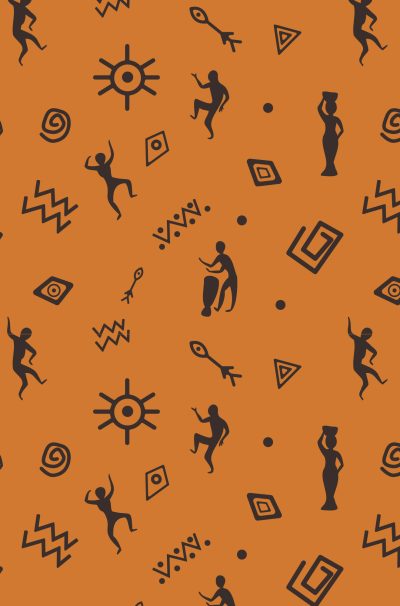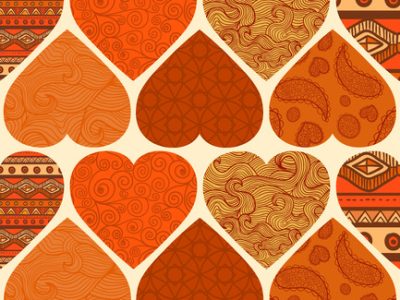Welcome to the captivating world of the Swahili language, where rich history, vibrant culture, and linguistic beauty intertwine. In this article, we embark on a journey to explore and understand the Swahili language, renowned for its widespread usage in East Africa and its growing global significance. From its fascinating origins to its unique linguistic features, we delve into the essence of Swahili, uncovering the reasons why it captivates learners from all corners of the world. Whether you’re a language enthusiast, a traveler, or simply curious about the diverse languages that shape our world, join us as we unravel the mysteries and unravel the mysteries and intricacies of the Swahili language. Get ready to embark on a linguistic adventure that will deepen your cultural understanding and broaden your horizons.
History
Kiswahili is a Bantu language that belongs to the Niger-Congo language family. The word Bantu means “people.” The languages of Baganda in Uganda, Sotho in Lesotho, Zulu in South Africa, and Kikuyu in Kenya are some examples of Bantu languages. Although these languages are not equally comprehensible, they are all derived from one common ancestral language and share some basic vocabulary, word-building processes, and sentence structure.
For example, the word for person in Kiswahili is “mtu” meaning “person” or “watu” meaning “people.” Both the singular and plural forms of the word are very similar in many Bantu languages examples:
Swahili language dates back from the interactions between Arabian traders and inhabitants of the east coast of Africa over many centuries. Swahili originated as a lingua franca used by several closely related bantu-speaking tribal groups under the Arabian influence. Kiswahili was originally spoken along the East African Coast from Southern Somalia to the Northern part of Mozambique and has existed for more than 1,000 years. The word “Swahili” has been derived from the Arabic word “Sahel” meaning “coast.” The spreading out of Swahili into the locality was facilitated by Coastal slave traders, merchants, missionaries and colonialists.
The late Presidents Nyerere of Tanzania, Jomo Kenyatta of Kenya and Prime Minister Milton Obote of Uganda promoted Kiswahili during the struggle for independence (uhuru). President Nyerere promoted Swahili in many ways including the translation of two Shakespearean plays: The Merchant of Venice (Mabepari Wa Venice) and Julius Caesar (Juliasi Kaisari). Nyerere also made Swahili the medium of instruction in elementary schools.
Swahili Dialects
Kiswahili is spoken in more than 15 dialects throughout East and Central Africa. The Kiunguja dialect of Zanzibar has been embraced as Standard Swahili since 1935 and is used by the media, as a medium of instruction in schools and in business relations. Other major dialects are Kimvita in mombasa, Kiamu in lamu, Kipemba in Pemba and Kitumbatu in Unguja island. Apart from these dialects, there are other dialects of people living in the interior of East and Central Africa, which tend to reflect the tribal languages of different Bantu speaking peoples.
Geography and Spread of Swahili
Currently, Kiswahili is mainly spoken in Tanzania, Kenya and Uganda as the national language. It is also spoken to some extent in seven other countries in East and Central Africa: Rwanda, Burundi, Democratic Republic of the Congo(DRC), Southern Somalia, Mozambique, Malawi and Zambia which together have a Swahili speaking population of approximately 50 million. Outside East and Central Africa Region, Kiswahili is spoken in some parts of Madagascar, South Africa and Djibouti. Swahili has also spread as far as Yemen and Oman in the middle east.
As a result of interaction between the native people and foreigners, Kiswahili has many loan words from other languages such as Arabic, English, German, Portuguese, Persian and Hindi. Foreign words in the Swahili language make up approximately 30% of the vocabulary, with the majority coming from Arabic. Swahili have altered many foreign words to meet their own needs. For example, borrowed words that have closed vowels (i.e. ending with consonants) have been altered so that they have open vowels (i.e. ending with a vowel).
Also some borrowed words have entirely changed their meaning. For example, the word rafiki (friend) is originally taken from the Arabic word “rafik” meaning “trusted one.” Moreover, the origin of some loan words cannot be traced to any particular language. In addition, Swahili has also contributed words to the English vocabulary such as the word safari, meaning “journey.”
Kiswahili has accomplished an international rank. The African Union, formerly the Organization of African Unity (OAU), has adopted Kiswahili as one of the official languages of Africa. For many years, major radio networks have been broadcasting Swahili programs. This include the BBC, Voice of America, Radio South Africa, Deutschewel (Germany), Radio Cairo, Radio Japan, Radio Beijing, All India Radio and Radio Moscow International. Many universities and colleges in Europe, Asia, North America and other parts of Africa have Swahili programs. Also, Swahili has been used in some North American movies such as Hotel Rwanda, the Last King of Scotland, the Lion King and Darwin’s Nightmare.
There are also several popular Swahili songs known throughout the world such as Hakuna Matata (No worries), Malaika Nakupenda Malaika (Angel, I love you Angel) and Jambo Bwana (Hello Mister). Some English songs such as All Night Long (by Lionel Ritchie) and Liberian Girl (by Michael Jackson) have Swahili phrases in them. Furthermore, there are hundreds of websites that deal with Swahili grammar, culture history and current news.
The most ambitious initiatives to promote Kiswahili have been started in the United States including the world famous Kamusi Project which is managed by the Swahili Department at Yale University. Both Google and Microsoft have launched Swahili language Internet search engines to make Kiswahili accessible to the world.
Some Cultural Aspects of Swahili
These aspects are Swahili greetings, oral traditions, expressions of gratitude, hospitality and clothing. Unlike in the Western world, the Swahili people take their greetings very seriously, especially in the rural areas where the majority of the population resides. It is considered impolite to pass by someone without greeting him or her even though the person may be a complete stranger. However, this courtesy is not as commonly practiced in the cities. After initial greetings, information can be exchanged about other things such as work, school, family, business and so forth. Greetings are accompanied by a handshake using the right hand. The left hand is never used for a handshake while greeting. Neither can it be used for giving or receiving things. If for some reasons one must use the left hand, due to a disability or if the right hand is occupied, one must apologize by saying samahani, which means “sorry.”
The Swahili people have strong storytelling traditions since many rural residents do not have frequent access to books, newspapers and the internet. These stories are designed to teach good morals, pass customs and traditions from one generation to the next, instill speaking skills and for entertainment purposes. Since many rural Swahili people live a communal lifestyle, everyone is expected to provide a helping hand to other community members. Therefore, it is less common for rural Swahili people to use expressions of gratitude when favors are exchanged.
On the contrary, if they do not fulfill their responsibilities or if they misbehave, they are reprimanded, blamed and sometimes even punished. The word for expressing gratitude in Swahili is Asante when thanking one person or asanteni when thanking more than one person. Visitors to East and Central Africa always remember the hospitality of the Swahili people most of whom go out of their way to assist complete strangers. They invite visitors (wageni) not only to share meals (karibu chakula) but also to have tea (karibu chai). When a guest bids farewell, he/she is welcome to visit again (karibu tena).
The type of clothing used by the Swahili people varies from place to place depending on the weather. On the coast where it is hot, women wear kanga (a rectangular piece of cloth) and men wear kanzu (loose-fitting garments). Some traditional Muslim women cover themselves with buibui (a black loose-fitting garment which covers the entire body except the eyes). The kanga cloth is of particular significance because it has writings in Swahili which are designed to educate, inform and pass on words of wisdom from one generation to the next. This is why the kanga is referred to as “the cloth that speaks.”





